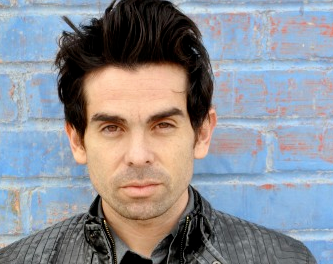“In Christ alone my hope is found.” These are the famous words of the modern-day hymn penned by Keith and Kristyn Getty. The song is only a few years old and has made its way across the globe and is quickly becoming a staple of church music and worship. Those opening words reflect one of the vital points of the Protestant Reformation. Salvation is found only in Christ. That is what Solus Christus means—Christ alone.
The doctrine of Solus Christus stands in direction contradistinction from the Catholic doctrine that says that salvation cannot be found outside of the Catholic Church. The doctrine of Solus Christus firmly declares that there is one mediator between God and man. We are not the mediators between a holy God and us. Mary is not the mediator for mankind. Neither are angels, good works, self-improvement or anything else. Christ alone is our mediator and Christ alone is our only hope of salvation.
Our look at Solus Christus will take us to the book of Colossians. The Apostle Paul is attacking heresy head on with this letter to the church in Colossae. There were some in the church bringing in all sorts of teachings that corrupted the truth that we are saved by Christ alone. Before he addresses these issues and heresies he sets forth the supremacy of Christ. He exalts Him high above and shows Him to be the one and only Savior. Read through these verses and notice how Paul describes Christ: the image of God, the first born of creation (which is a term of rank and does not mean He was created), He’s the Creator, eternal, the head of the church, preeminent….it was through Him that God is reconciling sinners to Himself.
Colossians 1:15-23 He is the image of the invisible God, the firstborn of all creation. 16 For by him all things were created, in heaven and on earth, visible and invisible, whether thrones or dominions or rulers or authorities—all things were created through him and for him. 17 And he is before all things, and in him all things hold together. 18 And he is the head of the body, the church. He is the beginning, the firstborn from the dead, that in everything he might be preeminent. 19 For in him all the fullness of God was pleased to dwell, 20 and through him to reconcile to himself all things, whether on earth or in heaven, making peace by the blood of his cross.
21 And you, who once were alienated and hostile in mind, doing evil deeds, 22 he has now reconciled in his body of flesh by his death, in order to present you holy and blameless and above reproach before him, 23 if indeed you continue in the faith, stable and steadfast, not shifting from the hope of the gospel that you heard, which has been proclaimed in all creation under heaven, and of which I, Paul, became a minister.
The rest of Paul’s letter to these Christians is a strong warning to them to not be disqualified by letting others insist that salvation is Christ PLUS other things. In other words, Paul is saying that salvation is found in Christ alone. To replace Christ with anything or to add anything to the finished work of Christ is to be disqualified from the race—this means that you are not saved. Solus Christus is not just a matter of preference. It’s a matter of life and death. Cling to Christ alone and you are saved. Cling to anything else and you are damned.
In Colossians 2 Paul warns the church not to fall prey to the philosophy and empty wisdom of the world. The world’s philosophies and wisdom they provide are empty. They appear to be full of wonderful promises and delights, but they empty. They are like storm clouds that look like they’re going to deliver rain, but then don’t! Paul plainly says that these things are not according to Christ. The wisdom of the world and their philosophies are not the way to combat sin. That is not how sin is dealt with. Sin is dealt with in Christ only. He cuts the sin out of our hearts…that is the point of spiritual circumcision. Christ, not the world, is doing the saving and redeeming and restoring.
In that same chapter we are told that the old man died with Christ…the new man was raised with Christ. His death and resurrection accomplished that for us. Our trespasses and sin were nailed to the cross that He hung on and because of that our sin debt was canceled. God disarmed the evil forces that dominated us and He did this through Christ.
Nowhere in Scripture are we told that anyone else or anything else does this for us. Scripture elevates Christ to such a high degree that you should be left with only one conclusion. Christ alone is our Savior and Mediator. He alone reconciles us to God and secures our salvation.
LEGALISM CAN’T SAVE YOU
In the latter part of Colossians 2, Paul tells the Colossian believers that no one is to pass judgment on them for not adhering to dietary laws and Old Testament holy days.
Colossians 2:16 Therefore let no one pass judgment on you in questions of food and drink, or with regard to a festival or a new moon or a Sabbath. 17 These are a shadow of the things to come, but the substance belongs to Christ.
Apparently there were some false teachers in the church saying that “real Christians” need to keep the dietary laws, festivals, new moon celebrations and Sabbaths. In other words, to be saved, the Colossians were wrongly told they had to practice the Old Testament ceremonies and rituals. What was Paul’s response to these teachings? “Don’t let anyone pass judgment on you! You are not damned for not keeping these regulations.” Paul then explains the truth regarding the Old Testament feasts, holidays and ceremonies: they were shadows of Christ….pictures of the things to come. All those things were leading us up to Christ. You know how when you see a shadow and you follow it to see what it casting it…well, once your eyes find what is making the shadow, then you have found the substance. The shadow exists because there is something real creating it. So too, when you looked at the Old Testament holidays, feasts and Sabbaths, you could follow them with your eyes and see what is casting the shadow. You should find that the shadow leads you directly to Christ. He is the substance. He is the real deal. They were about Him. Those Old Testament rituals, ceremonies and feasts were very important--they were there to lead people to Christ. But once Christ had come those things, those pictures became obsolete…they were no longer to be regarded. Not only that, but participating in those things never saved anyone. They pointed to Christ, who alone saves!
So the false teachers were trying to convince these Christians that salvation was found in Christ PLUS these rituals. Paul’s opening chapter in the letter was to warn these believers against the danger of failing to see Christ as the All-sufficient Savior. If they listened to these false teachers they would not be saved. Christ alone was to be their salvation.
ASCETICISM CAN’T SAVE YOU
Paul then goes on in the next few verses and says:
Colossians 2:18 Let no one disqualify you, insisting on asceticism and worship of angels, going on in detail about visions, puffed up without reason by his sensuous mind, 19 and not holding fast to the Head, from whom the whole body, nourished and knit together through its joints and ligaments, grows with a growth that is from God.
The word asceticism carries some deep meaning. Some translations have rendered this phrase as, “taking delight in false humility”. In it’s fullest sense, the word asceticism is used to describe the pride that these false teachers had in humbling themselves. They were proud of the fact that they denied their body food, clothing or anything else pleasurable. That’s why some translations use the phrase “false humility”. The act of humbling their body was a source of pride for them. It’s like being proud that you’re humble. It’s fake. It’s not real. They assumed that salvation and union with God was found in disciplining the body and suppressing desires. Many of the world’s religions still do these types of things in hopes that they will be united to God.
Some religious renounce all sexual relations. Some do not use electricity or they do not wear shoes. Some will wear clothes that are uncomfortable because they are made from rough material. Some will stand while eating or even fast for up to a month. There are some who own almost no possessions and even refuse to live in one place for more than two months because they may become attached to one place. Others engage in the Hindu practices of Yoga. To them, this is good news. This is how they are set free from the flesh. This is how they are set free from sin.
And Paul says, “Let no one disqualify you by insisting on asceticism.” Asceticism is not what frees you from sin. It does not lead to salvation. It does not lead to sanctification or becoming more holy and looking like Christ. But if you look at these kinds of these from the outside, it looks like these people are becoming more holy. But here is what Paul says. He says, “these regulations of…”
Colossians 2:21-23 “Do not handle, Do not taste, Do not touch” [22] (referring to things that all perish as they are used)—according to human precepts and teachings? [23] These have indeed an appearance of wisdom in promoting self-made religion and asceticism and severity to the body, but they are of no value in stopping the indulgence of the flesh.
Paul is saying that these are human rules and teachings. Do not handle this. Do not taste this food. Don’t touch that. These are according to the wisdom of man, not God. Living by strict rules will not save you. Paul says, “But it has the appearance of wisdom.” It sure looks good. But it is self-made religion, this severity to the body stuff. Look at what he says in the last phrase. They are of NO value in stopping the indulgence of the flesh. They do not help whatsoever in controlling your sinful appetite. They cannot quench your desire for sin.
Do you want to see how this plays out in our world today? Because people practice this kind of stuff…perhaps not as extreme, but they think that somehow their lesser forms of asceticism make them better people…and it surely puts them in right standing with God. Some people think they are good people and going to be with God because they have never done drugs, have never hurt anybody, they never speed on the road, they don’t spend their money frivolously, they watch what they eat, they exercise and take care of their body. They don’t realize it but they are practicing some form of asceticism. They are trying to live a life that denies extremes. Whether it be overeating, overspending, overreacting, or whatever, they think that their life of moderation is what makes them a good person. They think that this is the kind of life that pleases God and earns them salvation with God. It has the appearance of wisdom. But it is nothing more than a man-made religion that will disqualify people from the prize that Paul talks about. It disqualifies them from true holiness and true salvation.
But sadly this is just about all that pop-psychology can offer man these days. If Christians struggle with the sin of overeating what do they do? They don’t run to Christ do they? No. They run to Jenny Craig and put them on some ascetic diet. When children are bad, what do a lot of parents do? They put their kids in time-out—and that’s all they do. No fun for you…no pleasure for you—that’s asceticism. This will not work in saving our children, nor will it work in making them more holy. As parents our privilege and duty is to show our children law and gospel, sin and salvation—we show them how their sin is against God and how Christ saves them. And when we fail to point their children to Christ when it comes to discipline, we fail miserably. If you want your child to be saved and grow in godliness, asceticism won’t cut it. Only Christ will. Do not be disqualified. Do not participate in the disqualification of others by pointing them to inferior methods of avoiding sin and attaining salvation.
ANGELS CAN’T SAVE YOU
The worship of angels? I had no idea that baseball was so old. Just a bit of comic relief. But seriously, this church was plagued with blatant heresy. There were some ideas floating around that said that if you wanted God to hear and answer your prayers, then you had to get to God through angels.
Colossians 2:18 Let no one disqualify you, insisting on asceticism and worship of angels,
In their false humility these false teachers said that God could not be approached directly. He was too great to have humans come to Him directly. So the way that people reached God was through the angels that He created. In other words, the angels were the mediators between God and man. In order to get to God you had to go through His angels. This is how they paid homage and worship to the angels…by praying to them. The Judaizers reasoned that because the law of God was given by angels, then it was OK to invoke them or pray to them. This heresy started in the Colossian church and history records that it continued for another three hundred years. In fact, in about the year 363 A.D. a council of 30 clerics or clergyman got together in Asia Minor to discuss some concerns. Of the 60 concerns raised, number 39 had to do with heresies—specifically the heresy of angelici—or the angel invokers. The heresy of worshipping and praying to angels that started in Paul’s day continued on and the council took a stand and said that this was wrong because scripture condemned it.
These so-called humble people took their humility to an extreme. We are so low and God is so high that we cannot approach Him. There must be a mediator that we can pray to. There must be someone who stands between God and us and communicates to Him for us. They chose the angels to do this and prayed to them. But Scripture never teaches us to pray to angels as mediators. Christ alone grants us access to the Father.
There is no mention in Scripture of invoking angels when we need the help of God in overcoming sin. Christ told us to speak directly to the Father and pray, “Lead us not into temptation but deliver us from evil.” In Hebrews 4, the Bible tells us that we can come confidently to God’s throne in prayer to seek His help in overcoming sin. Unlike the humble Judaizers who were proud of their humility in not approaching God and prayed to angels for help, the writer of Hebrews tells us the opposite. Don’t be afraid to come to God for help in growing in holiness. Come boldly. Come confidently to God so that we can receive mercy and grace for the sins we commit.
Hebrews 4:14-16 [14] Since then we have a great high priest who has passed through the heavens, Jesus, the Son of God, let us hold fast our confession. [15] For we do not have a high priest who is unable to sympathize with our weaknesses, but one who in every respect has been tempted as we are, yet without sin. [16] Let us then with confidence draw near to the throne of grace, that we may receive mercy and find grace to help in time of need.
How awesome are these verses? We are weak and we will sin. How do we deal with this? Asceticism? Calling on angels? No. Going to God in prayer and holding fast to our confession. Our confession is that Christ is the Savior who died and rose again that we could be declared innocent of our sin and righteous before God. When we sin, we can confidently draw near to God, to the throne of grace and receive the mercy and grace that we need. When we are tempted to sin we can draw near to God and ask for help in overcoming it. Christ is able to sympathize with us. He knows what it is like to be tempted yet not cave in to sin. He knows we are weak and that we need His strength. So we ask the Lord for help. We do not need a mediator between God and us. Christ has provided that link for us.
1 Timothy 2:5-6 For there is one God, and there is one mediator between God and men, the man Christ Jesus, 6 who gave himself as a ransom for all, which is the testimony given at the proper time.
We insult God when we pray to beings that are not capable of answering prayer. We become disqualified from growing in holiness when we pray to another being. And ultimately, whom you pray to is the one who you believe can help. In essence that person or thing you pray to is your god. This would disqualify you from ever having a part in eternal life unless you repent of it and put your trust in Christ alone.
Sadly, this kind of thing takes place takes place when others insist that to get to God you must pray to the Virgin Mary or you must pray to dead saints. The problem of worshipping angels or needing dead saints in order to get you to God is that they lead you away from Christ. And any practice that leads you away from Christ, His salvation, His sanctification is a terrible thing and should be guarded against.
MYSTICISM CAN’T SAVE YOU
Colossians 2:18 going on in detail about visions, puffed up without reason by his sensuous mind,
You may recognize the root of the word mysticism. It looks like the word mystery. It has to do with things that are hidden. It has to do with hidden knowledge that needs to be found out. This was something that the early church continually fought against. The Gnostics came along and said that salvation and holiness were found in discovering secret knowledge of God. This secret knowledge was found in dreams and altered states of consciousness. Much like the Hindus practice with their yoga and chanting. It’s designed to put them in an altered state of consciousness whereby they can attain union and peace with God. These types of things are forbidden in Scripture. Union with God and secret knowledge of God are nowhere to be found in dreams. Union with God is found only in Christ. A saving knowledge of God is only found in Scripture as the Holy Spirit enables you to grab a hold of these truths spiritually.
These false teachers in the church of Colossae were so proud of their dreams and visions. They went on in detail describing every aspect of their dreams and what they had supposedly learned about God. They became puffed up or proud. This is what their sensuous or sinful mind led them to be. So get this. They were supposedly so humble because of their asceticism and worship of angels and dreams that it led them to be proud—it was a false humility they had. And it was without reason. Meaning that because this stuff was bogus there was no real reason for them to be proud. It only condemned them and led them to hell. There is no reason to be proud in that. Not only were they falsely humble, but they were also foolishly humble. They were fooled into thing that their dreams led to salvation and union with God.
These bogus Christians were bragging about their supposed new knowledge and revelation from their dreams. These false Christians told other believers that they were proud and arrogant for praying directly to God instead of praying through angels. These hypocrites insisted on asceticism as a way to holiness. All of these things they practiced showed that they did not understand the gospel. They did not understand Christ. They did not understand the reason for which He came. They did not know His power. Thus, they were disqualified. They were not at peace with God. They were never going to grow in true holiness. They were out!
You see, true Christianity is about the Supremacy of Christ in all things. He alone will be praised for all eternity for the salvation He gave us. How sly and wise the devil is in trying to get us to fall away from our Savior. These Satanic teachings have the appearance of godliness and truth, but they are damnable. They seem to be good news but when exposed they are bad news. They seem to be gospel but they are a false gospel. The heresies in Colossae all put the emphasis on what you do and they take your focus away from Christ and what He has done. True salvation is found in Christ alone.
Christ alone. Anything else disqualifies you from eternal life. And that is why we say with Scripture and with the Reformers, “Solus Christus!”
The doctrine of Solus Christus stands in direction contradistinction from the Catholic doctrine that says that salvation cannot be found outside of the Catholic Church. The doctrine of Solus Christus firmly declares that there is one mediator between God and man. We are not the mediators between a holy God and us. Mary is not the mediator for mankind. Neither are angels, good works, self-improvement or anything else. Christ alone is our mediator and Christ alone is our only hope of salvation.
Our look at Solus Christus will take us to the book of Colossians. The Apostle Paul is attacking heresy head on with this letter to the church in Colossae. There were some in the church bringing in all sorts of teachings that corrupted the truth that we are saved by Christ alone. Before he addresses these issues and heresies he sets forth the supremacy of Christ. He exalts Him high above and shows Him to be the one and only Savior. Read through these verses and notice how Paul describes Christ: the image of God, the first born of creation (which is a term of rank and does not mean He was created), He’s the Creator, eternal, the head of the church, preeminent….it was through Him that God is reconciling sinners to Himself.
Colossians 1:15-23 He is the image of the invisible God, the firstborn of all creation. 16 For by him all things were created, in heaven and on earth, visible and invisible, whether thrones or dominions or rulers or authorities—all things were created through him and for him. 17 And he is before all things, and in him all things hold together. 18 And he is the head of the body, the church. He is the beginning, the firstborn from the dead, that in everything he might be preeminent. 19 For in him all the fullness of God was pleased to dwell, 20 and through him to reconcile to himself all things, whether on earth or in heaven, making peace by the blood of his cross.
21 And you, who once were alienated and hostile in mind, doing evil deeds, 22 he has now reconciled in his body of flesh by his death, in order to present you holy and blameless and above reproach before him, 23 if indeed you continue in the faith, stable and steadfast, not shifting from the hope of the gospel that you heard, which has been proclaimed in all creation under heaven, and of which I, Paul, became a minister.
The rest of Paul’s letter to these Christians is a strong warning to them to not be disqualified by letting others insist that salvation is Christ PLUS other things. In other words, Paul is saying that salvation is found in Christ alone. To replace Christ with anything or to add anything to the finished work of Christ is to be disqualified from the race—this means that you are not saved. Solus Christus is not just a matter of preference. It’s a matter of life and death. Cling to Christ alone and you are saved. Cling to anything else and you are damned.
In Colossians 2 Paul warns the church not to fall prey to the philosophy and empty wisdom of the world. The world’s philosophies and wisdom they provide are empty. They appear to be full of wonderful promises and delights, but they empty. They are like storm clouds that look like they’re going to deliver rain, but then don’t! Paul plainly says that these things are not according to Christ. The wisdom of the world and their philosophies are not the way to combat sin. That is not how sin is dealt with. Sin is dealt with in Christ only. He cuts the sin out of our hearts…that is the point of spiritual circumcision. Christ, not the world, is doing the saving and redeeming and restoring.
In that same chapter we are told that the old man died with Christ…the new man was raised with Christ. His death and resurrection accomplished that for us. Our trespasses and sin were nailed to the cross that He hung on and because of that our sin debt was canceled. God disarmed the evil forces that dominated us and He did this through Christ.
Nowhere in Scripture are we told that anyone else or anything else does this for us. Scripture elevates Christ to such a high degree that you should be left with only one conclusion. Christ alone is our Savior and Mediator. He alone reconciles us to God and secures our salvation.
LEGALISM CAN’T SAVE YOU
In the latter part of Colossians 2, Paul tells the Colossian believers that no one is to pass judgment on them for not adhering to dietary laws and Old Testament holy days.
Colossians 2:16 Therefore let no one pass judgment on you in questions of food and drink, or with regard to a festival or a new moon or a Sabbath. 17 These are a shadow of the things to come, but the substance belongs to Christ.
Apparently there were some false teachers in the church saying that “real Christians” need to keep the dietary laws, festivals, new moon celebrations and Sabbaths. In other words, to be saved, the Colossians were wrongly told they had to practice the Old Testament ceremonies and rituals. What was Paul’s response to these teachings? “Don’t let anyone pass judgment on you! You are not damned for not keeping these regulations.” Paul then explains the truth regarding the Old Testament feasts, holidays and ceremonies: they were shadows of Christ….pictures of the things to come. All those things were leading us up to Christ. You know how when you see a shadow and you follow it to see what it casting it…well, once your eyes find what is making the shadow, then you have found the substance. The shadow exists because there is something real creating it. So too, when you looked at the Old Testament holidays, feasts and Sabbaths, you could follow them with your eyes and see what is casting the shadow. You should find that the shadow leads you directly to Christ. He is the substance. He is the real deal. They were about Him. Those Old Testament rituals, ceremonies and feasts were very important--they were there to lead people to Christ. But once Christ had come those things, those pictures became obsolete…they were no longer to be regarded. Not only that, but participating in those things never saved anyone. They pointed to Christ, who alone saves!
So the false teachers were trying to convince these Christians that salvation was found in Christ PLUS these rituals. Paul’s opening chapter in the letter was to warn these believers against the danger of failing to see Christ as the All-sufficient Savior. If they listened to these false teachers they would not be saved. Christ alone was to be their salvation.
ASCETICISM CAN’T SAVE YOU
Paul then goes on in the next few verses and says:
Colossians 2:18 Let no one disqualify you, insisting on asceticism and worship of angels, going on in detail about visions, puffed up without reason by his sensuous mind, 19 and not holding fast to the Head, from whom the whole body, nourished and knit together through its joints and ligaments, grows with a growth that is from God.
The word asceticism carries some deep meaning. Some translations have rendered this phrase as, “taking delight in false humility”. In it’s fullest sense, the word asceticism is used to describe the pride that these false teachers had in humbling themselves. They were proud of the fact that they denied their body food, clothing or anything else pleasurable. That’s why some translations use the phrase “false humility”. The act of humbling their body was a source of pride for them. It’s like being proud that you’re humble. It’s fake. It’s not real. They assumed that salvation and union with God was found in disciplining the body and suppressing desires. Many of the world’s religions still do these types of things in hopes that they will be united to God.
Some religious renounce all sexual relations. Some do not use electricity or they do not wear shoes. Some will wear clothes that are uncomfortable because they are made from rough material. Some will stand while eating or even fast for up to a month. There are some who own almost no possessions and even refuse to live in one place for more than two months because they may become attached to one place. Others engage in the Hindu practices of Yoga. To them, this is good news. This is how they are set free from the flesh. This is how they are set free from sin.
And Paul says, “Let no one disqualify you by insisting on asceticism.” Asceticism is not what frees you from sin. It does not lead to salvation. It does not lead to sanctification or becoming more holy and looking like Christ. But if you look at these kinds of these from the outside, it looks like these people are becoming more holy. But here is what Paul says. He says, “these regulations of…”
Colossians 2:21-23 “Do not handle, Do not taste, Do not touch” [22] (referring to things that all perish as they are used)—according to human precepts and teachings? [23] These have indeed an appearance of wisdom in promoting self-made religion and asceticism and severity to the body, but they are of no value in stopping the indulgence of the flesh.
Paul is saying that these are human rules and teachings. Do not handle this. Do not taste this food. Don’t touch that. These are according to the wisdom of man, not God. Living by strict rules will not save you. Paul says, “But it has the appearance of wisdom.” It sure looks good. But it is self-made religion, this severity to the body stuff. Look at what he says in the last phrase. They are of NO value in stopping the indulgence of the flesh. They do not help whatsoever in controlling your sinful appetite. They cannot quench your desire for sin.
Do you want to see how this plays out in our world today? Because people practice this kind of stuff…perhaps not as extreme, but they think that somehow their lesser forms of asceticism make them better people…and it surely puts them in right standing with God. Some people think they are good people and going to be with God because they have never done drugs, have never hurt anybody, they never speed on the road, they don’t spend their money frivolously, they watch what they eat, they exercise and take care of their body. They don’t realize it but they are practicing some form of asceticism. They are trying to live a life that denies extremes. Whether it be overeating, overspending, overreacting, or whatever, they think that their life of moderation is what makes them a good person. They think that this is the kind of life that pleases God and earns them salvation with God. It has the appearance of wisdom. But it is nothing more than a man-made religion that will disqualify people from the prize that Paul talks about. It disqualifies them from true holiness and true salvation.
But sadly this is just about all that pop-psychology can offer man these days. If Christians struggle with the sin of overeating what do they do? They don’t run to Christ do they? No. They run to Jenny Craig and put them on some ascetic diet. When children are bad, what do a lot of parents do? They put their kids in time-out—and that’s all they do. No fun for you…no pleasure for you—that’s asceticism. This will not work in saving our children, nor will it work in making them more holy. As parents our privilege and duty is to show our children law and gospel, sin and salvation—we show them how their sin is against God and how Christ saves them. And when we fail to point their children to Christ when it comes to discipline, we fail miserably. If you want your child to be saved and grow in godliness, asceticism won’t cut it. Only Christ will. Do not be disqualified. Do not participate in the disqualification of others by pointing them to inferior methods of avoiding sin and attaining salvation.
ANGELS CAN’T SAVE YOU
The worship of angels? I had no idea that baseball was so old. Just a bit of comic relief. But seriously, this church was plagued with blatant heresy. There were some ideas floating around that said that if you wanted God to hear and answer your prayers, then you had to get to God through angels.
Colossians 2:18 Let no one disqualify you, insisting on asceticism and worship of angels,
In their false humility these false teachers said that God could not be approached directly. He was too great to have humans come to Him directly. So the way that people reached God was through the angels that He created. In other words, the angels were the mediators between God and man. In order to get to God you had to go through His angels. This is how they paid homage and worship to the angels…by praying to them. The Judaizers reasoned that because the law of God was given by angels, then it was OK to invoke them or pray to them. This heresy started in the Colossian church and history records that it continued for another three hundred years. In fact, in about the year 363 A.D. a council of 30 clerics or clergyman got together in Asia Minor to discuss some concerns. Of the 60 concerns raised, number 39 had to do with heresies—specifically the heresy of angelici—or the angel invokers. The heresy of worshipping and praying to angels that started in Paul’s day continued on and the council took a stand and said that this was wrong because scripture condemned it.
These so-called humble people took their humility to an extreme. We are so low and God is so high that we cannot approach Him. There must be a mediator that we can pray to. There must be someone who stands between God and us and communicates to Him for us. They chose the angels to do this and prayed to them. But Scripture never teaches us to pray to angels as mediators. Christ alone grants us access to the Father.
There is no mention in Scripture of invoking angels when we need the help of God in overcoming sin. Christ told us to speak directly to the Father and pray, “Lead us not into temptation but deliver us from evil.” In Hebrews 4, the Bible tells us that we can come confidently to God’s throne in prayer to seek His help in overcoming sin. Unlike the humble Judaizers who were proud of their humility in not approaching God and prayed to angels for help, the writer of Hebrews tells us the opposite. Don’t be afraid to come to God for help in growing in holiness. Come boldly. Come confidently to God so that we can receive mercy and grace for the sins we commit.
Hebrews 4:14-16 [14] Since then we have a great high priest who has passed through the heavens, Jesus, the Son of God, let us hold fast our confession. [15] For we do not have a high priest who is unable to sympathize with our weaknesses, but one who in every respect has been tempted as we are, yet without sin. [16] Let us then with confidence draw near to the throne of grace, that we may receive mercy and find grace to help in time of need.
How awesome are these verses? We are weak and we will sin. How do we deal with this? Asceticism? Calling on angels? No. Going to God in prayer and holding fast to our confession. Our confession is that Christ is the Savior who died and rose again that we could be declared innocent of our sin and righteous before God. When we sin, we can confidently draw near to God, to the throne of grace and receive the mercy and grace that we need. When we are tempted to sin we can draw near to God and ask for help in overcoming it. Christ is able to sympathize with us. He knows what it is like to be tempted yet not cave in to sin. He knows we are weak and that we need His strength. So we ask the Lord for help. We do not need a mediator between God and us. Christ has provided that link for us.
1 Timothy 2:5-6 For there is one God, and there is one mediator between God and men, the man Christ Jesus, 6 who gave himself as a ransom for all, which is the testimony given at the proper time.
We insult God when we pray to beings that are not capable of answering prayer. We become disqualified from growing in holiness when we pray to another being. And ultimately, whom you pray to is the one who you believe can help. In essence that person or thing you pray to is your god. This would disqualify you from ever having a part in eternal life unless you repent of it and put your trust in Christ alone.
Sadly, this kind of thing takes place takes place when others insist that to get to God you must pray to the Virgin Mary or you must pray to dead saints. The problem of worshipping angels or needing dead saints in order to get you to God is that they lead you away from Christ. And any practice that leads you away from Christ, His salvation, His sanctification is a terrible thing and should be guarded against.
MYSTICISM CAN’T SAVE YOU
Colossians 2:18 going on in detail about visions, puffed up without reason by his sensuous mind,
You may recognize the root of the word mysticism. It looks like the word mystery. It has to do with things that are hidden. It has to do with hidden knowledge that needs to be found out. This was something that the early church continually fought against. The Gnostics came along and said that salvation and holiness were found in discovering secret knowledge of God. This secret knowledge was found in dreams and altered states of consciousness. Much like the Hindus practice with their yoga and chanting. It’s designed to put them in an altered state of consciousness whereby they can attain union and peace with God. These types of things are forbidden in Scripture. Union with God and secret knowledge of God are nowhere to be found in dreams. Union with God is found only in Christ. A saving knowledge of God is only found in Scripture as the Holy Spirit enables you to grab a hold of these truths spiritually.
These false teachers in the church of Colossae were so proud of their dreams and visions. They went on in detail describing every aspect of their dreams and what they had supposedly learned about God. They became puffed up or proud. This is what their sensuous or sinful mind led them to be. So get this. They were supposedly so humble because of their asceticism and worship of angels and dreams that it led them to be proud—it was a false humility they had. And it was without reason. Meaning that because this stuff was bogus there was no real reason for them to be proud. It only condemned them and led them to hell. There is no reason to be proud in that. Not only were they falsely humble, but they were also foolishly humble. They were fooled into thing that their dreams led to salvation and union with God.
These bogus Christians were bragging about their supposed new knowledge and revelation from their dreams. These false Christians told other believers that they were proud and arrogant for praying directly to God instead of praying through angels. These hypocrites insisted on asceticism as a way to holiness. All of these things they practiced showed that they did not understand the gospel. They did not understand Christ. They did not understand the reason for which He came. They did not know His power. Thus, they were disqualified. They were not at peace with God. They were never going to grow in true holiness. They were out!
You see, true Christianity is about the Supremacy of Christ in all things. He alone will be praised for all eternity for the salvation He gave us. How sly and wise the devil is in trying to get us to fall away from our Savior. These Satanic teachings have the appearance of godliness and truth, but they are damnable. They seem to be good news but when exposed they are bad news. They seem to be gospel but they are a false gospel. The heresies in Colossae all put the emphasis on what you do and they take your focus away from Christ and what He has done. True salvation is found in Christ alone.
Christ alone. Anything else disqualifies you from eternal life. And that is why we say with Scripture and with the Reformers, “Solus Christus!”






















